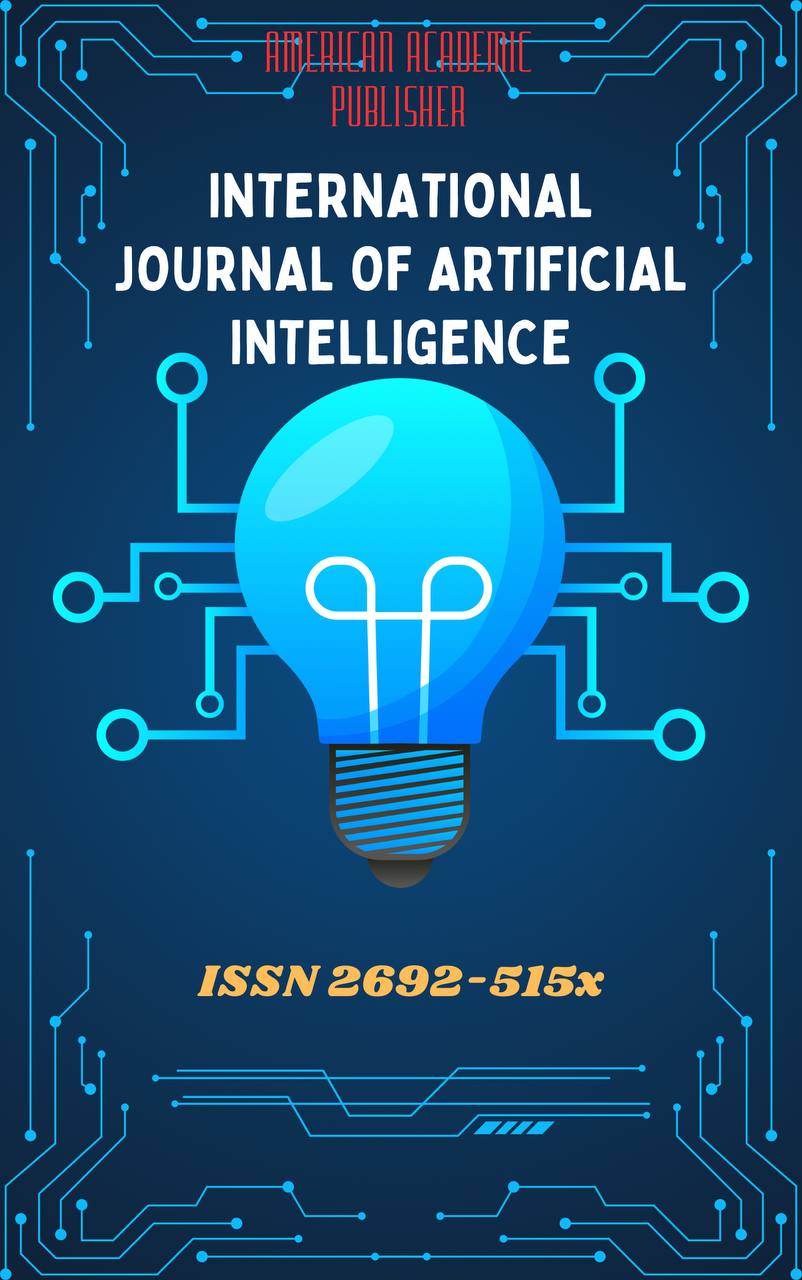 Articles
| Open Access |
Articles
| Open Access | COGNITIVE AND PRAGMATIC DIMENSIONS OF IDIOMATIC EXPRESSIONS IN ENGLISH AND UZBEK LANGUAGES: A COMPARATIVE LINGUOCULTURAL ANALYSIS
Nazarov Bekhzod Bakhtiyarovich , A teacher World Languages Department Kokand University. World languages departmentAbstract
Idiomatic expressions, deeply rooted in the cultural and cognitive systems of a language, pose a unique challenge for learners and researchers alike. This study explores the cognitive and pragmatic aspects of idiomatic expressions in English and Uzbek languages, aiming to uncover how they reflect conceptual metaphors, cultural identity, and communicative intent. Drawing on the principles of cognitive linguistics and pragmatics, the article analyzes common idioms in both languages, highlighting their figurative meanings, sociocultural relevance, and usage contexts. The comparative approach reveals significant differences and overlaps in idiom formation, conceptual mapping, and pragmatic function. Particular attention is given to how cultural values shape idiomatic meaning and how idioms contribute to discourse coherence and interpersonal communication. The findings offer valuable insights for linguists, translators, and educators interested in cross-cultural communication and second language acquisition. This research ultimately promotes deeper understanding of the cognitive-cultural fabric underlying idiomatic language in English and Uzbek.
Keywords
Idiomatic expressions, cognitive linguistics, pragmatics, English language, Uzbek language, figurative meaning, metaphor, cross-cultural, semantics, discourse, phraseology, language teaching, comparative study, cultural identity, conceptual metaphor, linguistic relativity, idiom translation, sociolinguistics, intercultural competence, meaning construction.
References
Bakhtiyarovich, N. B. (2024, August). LINGVOCOGNITIVE AND LINGUOCULTURAL STUDY OF MEASUREMENT UNITS IN ENGLISH AND UZBEK LANGUAGES. In INTERDISCIPLINE INNOVATION AND SCIENTIFIC RESEARCH CONFERENCE (Vol. 22, No. 2, pp. 51-53).
ENGLISH SPEAKING: TIPS FOR IMPROVING PUBLIC SPEAKING, CONVERSATION SKILLS, AND PRONUNCIATION 2024-01-30
LINGUOCULTURAL STUDY OF ANTONYMS USED IN LITERARY TEXT
Nazarov , B. (2024). ENGLISH SPEAKING: TIPS FOR IMPROVING PUBLIC SPEAKING, CONVERSATION SKILLS, AND PRONUNCIATION. Talqin Va Tadqiqotlar, 2(2(39). извлечено от https://talqinvatadqiqotlar.uz/index.php/tvt/article/view/1795
Nazarov Behzod Baxtiyarovich. (2024). LEARNERS’ MOTIVATION AND ATTITUDE TOWARDS ENGLISH AS A FOREIGN LANGUAGE. Kokand University Research Base, 205–210. Retrieved from https://scholar.kokanduni.uz/index.php/rb/article/view/312
Nazarov Behzod Baxtiyarovich. (2024). POSSIBILITIES OF USING INTERNET IN TEACHING ENGLISH LANGUAGE. Kokand University Research Base, 211–216. Retrieved from https://scholar.kokanduni.uz/index.php/rb/article/view/313
Nazarov Bekhzod Bakhtiyarovich. (2023). THE USE OF MODERN TECHNOLOGIES IN TEACHING FOREIGN LANGUAGE SPEAKING IN HIGH SCHOOL. QO‘QON UNIVERSITETI XABARNOMASI, 1(1), 971–974. https://doi.org/10.54613/ku.v1i1.476
Nazarov, B. (2024). LINGVOCOGNITIVE AND LINGUOCULTURAL STUDY OF MEASUREMENT UNITS IN ENGLISH AND UZBEK LANGUAGES. QO‘QON UNIVERSITETI XABARNOMASI, 13, 292–294. https://doi.org/10.54613/ku.v13i.1080
Nazarov, B. (2024). MEASUREMENT UNITS IN THE ENGLISH AND UZBEK LANGUAGES: LINGUOCOGNITIVE AND LINGUOCULTURAL INVESTIGATION. QO‘QON UNIVERSITETI XABARNOMASI, 13, 306–308. https://doi.org/10.54613/ku.v13i.1085
Nazarov, Bekhzod Bakhtiyarovich (2022). LINGUOCULTURAL STUDY OF ANTONYMS USED IN LITERARY TEXT. Oriental renaissance: Innovative, educational, natural and social sciences, 2 (6), 1115-1119.
Article Statistics
Downloads
Copyright License

This work is licensed under a Creative Commons Attribution 4.0 International License.
